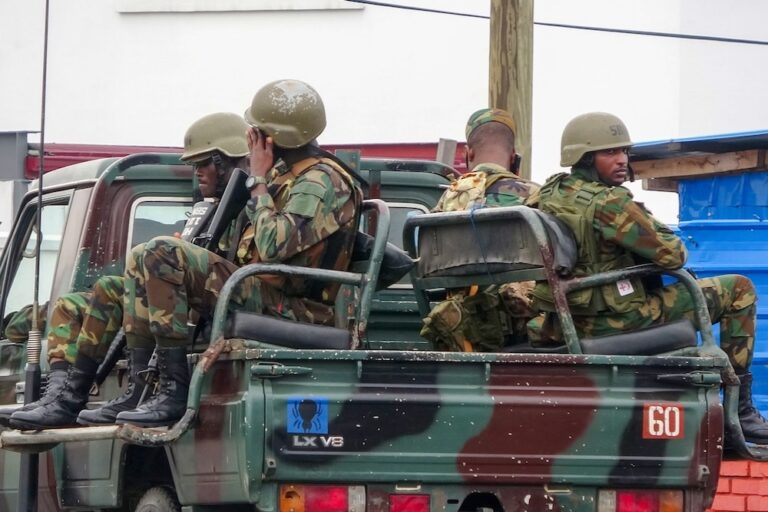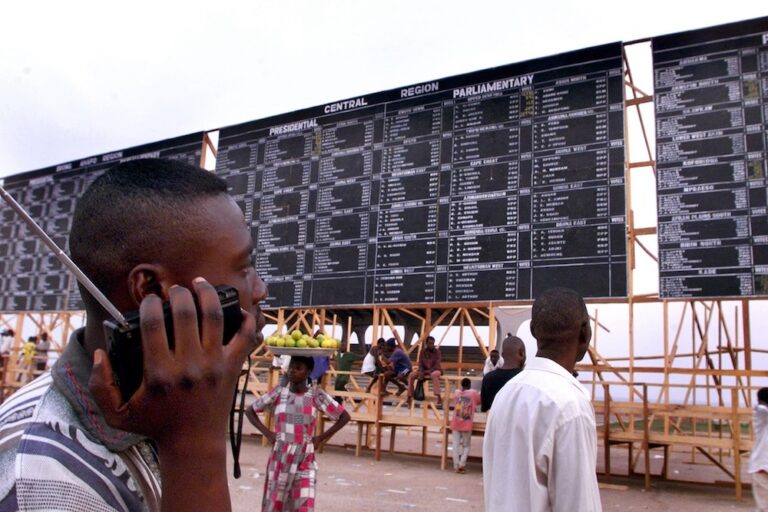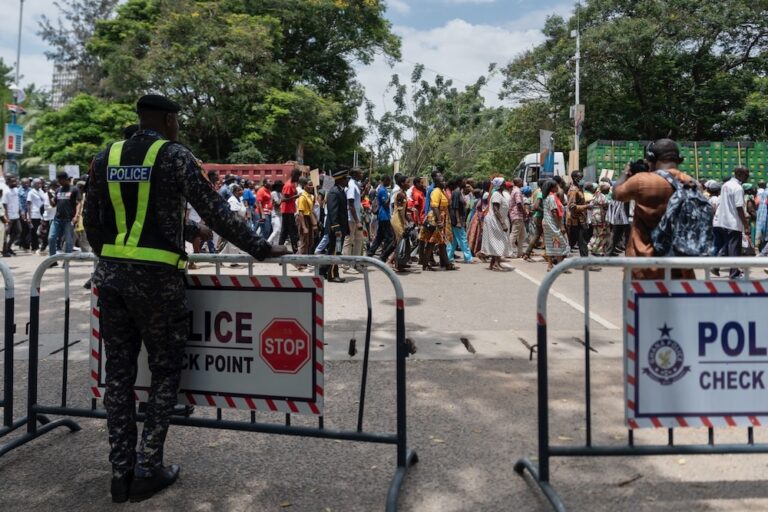At a frank discussion on misinformation convened by Media Foundation for West Africa (MFWA) and partner, stakeholders take tough stance on political propaganda and regulation of social media platforms.
This statement was originally published on mfwa.org on 24 March 2023.
At end of the public forum on mis-disinformation in Ghana, media stakeholders highlighted three main drivers of the problem: political party propaganda, legacy media’s sacrifice of news accuracy for speed and the Ghana government’s regulation challenge.
Consequently, to arrest the problem, the main recommendations by participants were that stakeholders take action to stem these three main drivers. The forum also demanded more responsibility for information accuracy from big tech companies and App makers.
The forum which was held in Ghana’s capital, Accra, came off at the Alisa hotel on Wednesday, March 22, 2023, under the theme: Misinformation, Peace and Democratic Consolidation in Ghana. It was hosted by the Media Foundation for West Africa (MFWA) in partnership with Ghana’s National Peace Council (NPC) and the country’s media regulator, the National Media Commission (NMC).
Chaired by Prof. S.K.B Asante, Omanhene of Asante Asokore and Board Member of the National Peace Council, it brought together stakeholders from government, political parties, the diplomatic community, academia and civil society. It had as keynote speaker, Mr George Sarpong, Executive Secretary of the NMC said the popular supposition that the internet is too broad to be regulated is a myth and that as has happened in countries like China and Rwanda.
George Sarpong, Executive Secretary of the NMC, was the keynote speaker at the forum. Mr. Sarpong allayed fears that the regulation will serve to curtail freedom of expression, saying it will be done democratically. He, however, urged civil society to be ready with inputs for an upcoming national discourse on regulation, warning that otherwise civil society will be taken by surprise.
As part of the forum, a panel with representatives from the two main political parties in Ghana – National Democratic Congress (NDC) and New Patriotic Party (NPP) was convened. Mr. Alhassan Suhiyini, Member of Parliament for Tamale North who represented the NDC, said one of the biggest drivers of misinformation is the failings of legacy media in its duty to provide the yardstick for vouching for the factuality of news.
There was a panel discussion to delve deep into the mis-disinformation issue in Ghana. According to him, it is no longer the case in Ghana that when news hits social media platforms it is crosschecked with traditional media because, in a bid to keep in competition in the heavily digitalized news world, traditional media is sacrificing accuracy for speed. Consequently, traditional media has become reliant on social media for news as well, something that often, unintentionally, makes it reaffirm fake news.
Mr. Suhiyini agreed with another panelist, the MFWA’s Fact Check Lead, Kwaku Krobea Asante, that from fact-checking trends, politicians in Ghana tend to be some of the most guilty perpetrators of mis/disinformation, especially during election seasons. According to the MP, it is so because politicians often are constrained to couch their messages in such a way that they really hit home with voters.
Mr. Richard Ahiagba, the NPP’s Director of Communications who represented his party, also agreed that politicians are perpetrators of mis/disinformation in Ghana but said the problem should not be blamed on politicians alone. He also called for collaborative efforts by all stakeholders to tackle the problem.
Another panelist, Dr. Victor Doke, Lecturer at the Kofi Annan International Peacekeeping Training Centre said that Ghana was being complacent in regards to the dangerousness of mis-disinformation, adding that happenings in Nigeria’s election in 2023 should warn the country that if the problem is left unchecked, it could lead to conflict.
The MP for Tamale North, Alhassan Suhiyini, also called on the authorities to demand more responsibility from big tech companies like Meta which owns Facebook and WhatsApp, as far as ensuring the accuracy of information that circulates on their platforms is concerned. He lamented that these big tech companies are lax with these responsibilities in Ghana even though in other places like Europe and the US, they have taken more responsibility.
Some members of the audience who agreed on the need to make tech companies more responsible wondered if the government of Ghana had the capacity to regulate these international tech giants. To this, Mr. George Sarpong of the NMC answered in the positive, hinting that regulation will soon be announced in Ghana.
Chairman of the forum, Nana Prof. SKB Asante, reiterated the need to tame mis-disinformation because they pollute freedom of expression which is guaranteed by Ghana’s 1992 constitution. Prof. S.K.B Asante, Omanhene of Asante Asokore and Board Member of the National Peace Council, was the Chairman of the forum.
He also called attention to what he described as a digital provocation – the usage of internet platforms, especially social media, to provoke individuals, companies and even countries, saying it is a dangerous thing that must also be stemmed.
The MFWA, NPC and NMC forum on mis-disinformation also had remarks from Ghana’s Deputy National Security Coordinator, Timothy Coleman, and solidarity messages from the British High Commission, UNESCO Ghana and National Commission on Civic Education.
Other attendees were students from the National Film and Television Institute (NAFTI) and the Ghana Institute of Journalism; and also from the Ghana Journalists Association, the Private Newspaper Owners Association of Ghana and both private and state media.
The forum forms part of a larger project being funded by the Foreign, Commonwealth and Development Office of the United Kingdom, under which 130 journalists from across Ghana are being trained in fact-checking in order to enable them counter mis-disinformation.



